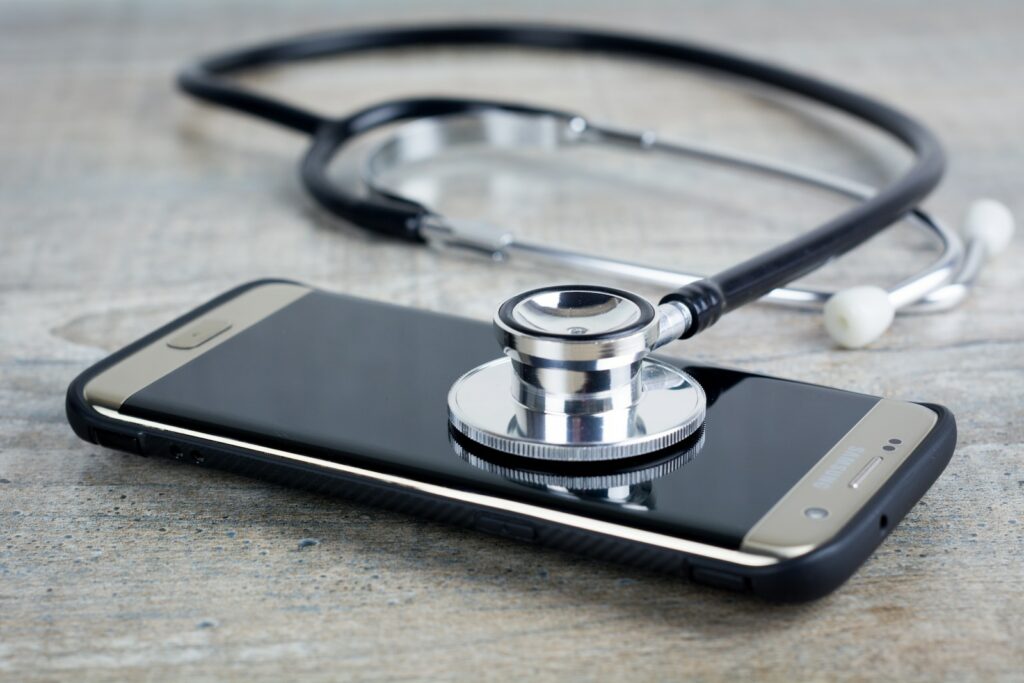Cardiovascular disease (CVD) is the leading cause of death globally, accounting for nearly 18 million deaths each year. As a result, there is a growing need for effective strategies to prevent and manage this prevalent condition.
Enter mobile health (mHealth) – the use of mobile devices and wireless technologies in healthcare that has emerged as a powerful tool to address this challenge, offering new methods for tracking and promoting cardiovascular health.
mHealth Tools for Monitoring Cardiovascular Health
mHealth encompasses a range of tools such as wearable devices, mobile apps, telemedicine platforms, digital coaching, and online support communities that help monitor CVD, provide personalized recommendations and support, and facilitate virtual consultations with healthcare professionals.
By using mHealth, individuals can become more proactive in managing their cardiovascular health, leading to better health outcomes and overall well-being.
Wearable devices
Wearables can contribute significantly to cardiovascular disease prevention by promoting consistent physical activity and keeping track of vital signs.
Devices such as smartwatches and fitness trackers are becoming increasingly popular for tracking physical activity, heart rate, and sleep patterns. They help individuals monitor their exercise habits and receive personalized feedback to promote healthier lifestyles.
In addition, some advanced wearables offer additional features, such as electrocardiogram (ECG) monitoring, to provide even more comprehensive insights into heart health.
Such technology can help identify irregular heart rhythms or other potential problems, allowing for early intervention and prevention of cardiovascular events.
Mobile applications
Mobile applications can also be a powerful tool in CVD management and offer a range of features – including blood pressure and cholesterol tracking, medication adherence, stress management, and personalized exercise plans – all promoting healthy lifestyle choices.
Take Cardi Health, for instance. It is a comprehensive app that allows users to log their blood pressure readings, set medication reminders, and receive personalized health tips, all while helping those individuals adhere to prescribed treatments at home.
Additionally, some apps offer features like nutrition tracking, stress management, and personalized exercise plans, further supporting overall cardiovascular health.
Remote patient monitoring systems
For people living with chronic conditions or at higher risk for heart disease, remote patient monitoring systems offer the ability to transmit real-time health data to healthcare professionals.
Because patients can use these systems from the comfort of their homes, it can be especially helpful for those with mobility issues or who live in remote areas.
This paves the way for accurate, timely health assessments that enable personalized treatment plans and rapid intervention when needed.
Telemedicine platforms
Similar to remote monitoring systems, the use of telemedicine platforms allows people who live in remote areas or have limited mobility to connect with healthcare providers remotely, expanding the availability of healthcare.
In terms of cardiovascular health, this can be a game changer, allowing for more frequent check-ins and the ability to modify treatment plans on the fly as needed.
Digital health coaching
Some mHealth tools offer personalized coaching and support to help users make healthier lifestyle choices, such as improving their diet, increasing physical activity, and reducing stress.
These digital coaches use artificial intelligence and data analytics to provide tailored recommendations and encouragement to users in order to help them maintain their cardiovascular health goals.
Online support communities
Many mHealth tools provide access to online communities where users can connect with others who share similar health challenges and goals.
These communities provide valuable emotional support and practical advice to help users stay motivated and engaged in their cardiovascular health journey.
Overall, online support communities can be a valuable resource for patients, caregivers, and healthcare professionals, helping to improve patient outcomes and engagement in their own care.
The Benefits of Using mHealth for Cardiovascular Disease Prevention
The use of mHealth in the prevention and management of CVD offers several notable benefits, including the following:
Improved access to care
mHealth technologies can significantly improve access to healthcare, especially for underserved populations or those living in remote areas.
With all the tools in its portfolio, mHealth extends the reach of healthcare services and ensures that more people receive the preventive care they need to maintain good cardiovascular health.
All in all, mHealth solutions can play a critical role in bridging the gap between primary care providers and specialists.
By enabling seamless communication and collaboration between healthcare providers, mHealth can help ensure that patients receive the most appropriate and timely care.
Convenience and flexibility
One of the most appealing aspects of mHealth is the convenience it offers.
With the ability to monitor their health from anywhere at any time, individuals can reduce the need to visit clinics for routine check-ups.
This flexibility can be particularly beneficial for individuals with busy schedules or limited mobility.
Moreover, by empowering patients to take charge of their own health, mHealth can contribute to more efficient and personalized healthcare.
Increased patient engagement and empowerment
mHealth technology is also a catalyst for increased patient engagement and empowerment.
Through educational resources and personalized feedback, mobile apps and wearables empower users to better manage their cardiovascular health.
As a result, patients are more likely to take an active role in their care, make informed decisions, and adhere to prescribed treatment regimens.
mHealth platforms often incorporate gamification elements such as goal setting, progress monitoring, and reward systems – which can inspire users to stick with their healthy habits and maintain a long-term commitment to their health management.
Conclusion
mHealth is changing the way we prevent and manage cardiovascular disease. By providing cutting-edge cardiovascular health monitoring tools, such as wearables and mobile apps, mHealth simplifies the process of empowering individuals to take charge of their well-being and make informed decisions.
The benefits of mHealth, including improved access to care, greater convenience, and increased patient engagement, have the potential to revolutionize the healthcare landscape and significantly reduce the burden of cardiovascular disease.
3 Ways Wearable Technology is Used to Track Body Transformation(Opens in a new browser tab)
As technology advances, mHealth solutions are likely to become even more sophisticated and tailored, further increasing their effectiveness in preventing cardiovascular disease.
